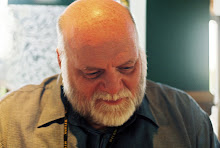Morning and Evening
William is a male nurse whose military training gives him an air of assurance and command. He’s not arrogant or demanding at all but one is always aware of his confidence and capability. He’s also straight-laced enough that when he tells stories on himself, they’re hilarious.
William responded to one of the C.N.A.’s this morning who said that she was flabbergasted when a patient asked that she tuck her breasts inside her panties. “Flash” (That’s what I call her because she’s speed limit challenged) was telling us about it without revealing the patient’s name and the team was rolling with laughter. William, who tells these things with his glasses on the tip of his nose, one-upped Flash by saying that soon after he started with hospice he was assessing a woman and couldn’t find a bowel sound with his stethoscope.
William said, demonstrating with an imaginary stethoscope, “I placed the stethoscope here and didn’t hear anything. I moved it over here, and still didn’t hear anything. I moved it over here and glanced up at her, and she was smiling (William demonstrating a sly grin) --still no sound. All at once, it came to me, it wasn’t her stomach I was listening to; it was her breast.”
William paused with the timing of a professional comedian while we died with laughter and then said, “I was so embarrassed. I mean what do you say, ‘Please lift it up so I can get under it?’”
I had to tell that because that’s how the day began today. It ended with a man dying while I held his hand. His wife was on the other side of the bed and she and the social worker worked at trying to get some medication ready for him. All at once his breathing changed, his eyes rolled up into the extreme right side of the sockets; he made a face and died. His wife called his name desperately, threw herself back on the bed, then, still sobbing, laid her head on his chest while me and the social worker comforted her.
It never seems to get easy. It was up close and personal and we were both exhausted after it was over. I am amazed at how intimate this work is because people throw themselves into our arms as if we were family. They expose their most intimate feelings with us with almost complete abandon and we are found to be trustworthy 99.99% of the time.
If I had known how this day would end, I would’ve turned my car into a local park and hidden out in the abandoned camping sites while the rain and wind whispered me to sleep. I would have waked long enough from time to time to pray and prepared for the death; cleansing myself for the sacred transition. I would have watched the clock with dread and finally eased out of hiding to travel a sort of “Green Mile” to the dying man.
But, it didn’t happen that way. A routine visit writhed and twisted into a different creature and my partner and I had to shape shift as well. Fortunately, the shape of our compassion is just under the surface and the shift into it is usually readily done. We are authentic people who live out our ideals.

